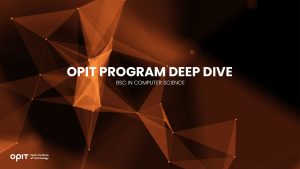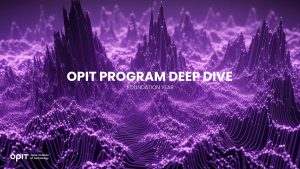La Stampa: Francesco Profumo – “The ministry only supervises individual acts. Autonomy is not up for discussion”


Source: La Stampa, also in physical edition from June 09th 2024, page 24.
Francesco Profumo: “The ministry only supervises individual acts. Autonomy is not in question”
The former president of Compagnia and Acri: “The system of institutions has antibodies. For appointments, the triad mechanism doesn’t work, a simple indication is better”
By Claudia Luise, June 9th, 2024 at 12:17
4 min reading
“Foundations have the antibodies to overcome complicated moments”. Francesco Profumo, former President of the Compagnia di San Paolo and former President of Acri (l’Associazione di Fondazioni e di Casse di Risparmio italiane) answers the phone while he is at the airport, engaged in his double life as a trainer with the academic institution OPIT (of which he is rector) and an innovator with Isybank, the online bank of Intesa Sanpaolo (of which he is President).
What is your opinion on the Crt Foundation affair?
“I don’t want to go into the Crt issue, because I don’t know the details and it’s not my responsibility, but I can report my personal experience, as a former president of the foundation. In recent months, the Compagnia di San Paolo has undertaken the process of revising its statute and renewing its governance, everything went smoothly and within the expected time frame. I believe that the Society’s statute is a good statute and that it can also be a model for other foundations. As preliminaries to the revision of the statute, which is approximately 10 years old, the new post-pandemic national and European context, the hybrid territorial foundation model and the new operating methods tested in the last 8 years, during my presidency, were posed. The designating bodies have a very important role, because they designate the Councilors of the new governance, with the skills necessary to make the foundation work well collegially. The designations are “dry”, one for each position to be renewed. The Steering Committee constitutes a collegial evaluation of the CV of each designee and votes on their appointment. The Directors thus appointed have no mandate and must work for the good of the foundation and the beneficiaries”.
If a commissioner arrives in Turin, could the “fool” made by the territory also generate repercussions within the Company?
“I do not think so. The Company has demonstrated over the decades that it is a resilient entity, despite natural transitions in governance. Some accidents can happen in a large community like that of foundations, in Italy there are 86, but I believe that there are the right antibodies to bring these events back to the right dimension”.
Is it right for foundations to be controlled at a public level?
“The ruling of the Consulta, 300 of 2003, clarified that foundations are private bodies with full statutory and management autonomy, non-profit, with social objectives, subject to legitimacy supervision of individual acts by the Treasury. So there are all the elements for these bodies to be responsibly autonomous. From this point of view there has been an interesting evolution.”
What was it?
“The thirty years of the foundations can be divided into approximately three decades. The first, from the Amato law (1990) to the Ciampi law (1999), in which well-defined rules did not yet exist and potential beneficiaries asked for resources directly from the foundations, which responded based on availability. The second, from the Ciampi law to the signing of the Acri-MEF protocol (2015), in which the rules were written, for example on the management of assets and on the maximum number of director mandates”.
And now?
“The maturity of the foundations has been underway since 2015. Today they are subjects who act, in the territories, as development agents and, as such, have developed the strategic capacity to define objectives, priorities and methods of intervention and operate in subsidiarity with other third sector subjects, public and private. Many foundations today operate in a hybrid mode: they are not only providers, but also implementers.”
What does this mutation mean?
“Foundations increasingly often implement capacity building, co-planning and results evaluation actions. The Pnrr was a very interesting field of experimentation with excellent results.”
What do you think of Lagarde’s decision to lower rates?
“The European Central Bank acted correctly.”
What path should the ECB take?
“President Lagarde’s words are very clear. “Interest rates must remain restrictive as long as necessary to ensure price stability on a lasting basis“. In other words, we will still have to keep our foot on the brake pedal for a while, even if we don’t push as hard as before.”
OPIT, the leading academic institution dedicated to the digital themes, is organizing a meeting at the Grattacielo Intesa Sanpaolo in Turin on Thursday. But why do we need educational programs like this?
“Next will be the second academic year of this new institution which is based in Malta. The fundamental reason is that there is a demand for education that is closely connected to the digital transition, with all that it entails, both from the point of view of skills and the speed of change and uncertainty. Industrial revolutions previously lasted up to 90 years and therefore what you learned in school was enough for a lifetime. This industrial revolution, however, will be very short, it will last about twenty years, so it will be necessary to do more training. And then, while in the other three revolutions there was a partial replacement of people’s muscular strength with a form of energy, now for the first time we have an aid to brain activity.”
What impact does all this have on education?
“By putting these elements together, we understand that the training models and the resulting offer will have to be different compared to the past: they will have to be more diversified (different actors who will play their part in this new world that is being built) and based on a model of people’s lives that surpasses the current one, dictated by a part of studying/training, a part of work and a part of retirement. The reduction of the times of this revolution will ensure that what we have learned in school is not enough and therefore we will need to go back to school several times, unlearning things we have learned and learning new ones. In the first part of life, therefore, we must learn to learn; otherwise, updating skills will become extremely tiring for people. So there is a growing demand to decouple knowledge from skills: the former will last a lifetime, the latter will not. OPIT is an educational offer designed not on the basis of previous experiences, but on the basis of future needs. There are teachers from over 40 countries and the accreditation is done in an English-speaking nation to have a truly international spirit with students from all over the world who can contribute to the creation of this new training culture.”
What role could the Italian foundation for AI, born in Turin a few weeks ago, have?
“It is a little early to say what the operational model of the Foundation will be, the President has just been appointed and the first act will be the start of the selection procedure for the Director. The Director, who is the central figure for the development of the Centre, will have to present the Strategic Plan, which will indicate the main sectors of activity, the skills of the staff who will have to be hired initially and the network of scientific relations at local, Italian and European level , which will be launched in the first two years of the Foundation’s life. The times will not be short, also due to the competition with other similar initiatives, which are developing in Italy and Europe”.
As president of Isybank, how do you combine all the roles?
“Training, research and applications in the artificial intelligence sector are and will be increasingly interesting, with their developments happening in the coming years. We are only at the dawn of a revolution that will profoundly change our way of living, studying and working and we will have to be prepared to manage these transitions. I am sure that the speed of change and the uncertainty of the future will be two characterizing elements of this historical phase and we will have to be very careful not to forget the centrality of man and the ethical aspects with respect to the changes we will have to make. We will have to be very attentive to the education of the new generations, starting from the first years of school, but we will also have to invest with great attention in people already in adulthood, who will have to be accompanied and not abandoned. With reference to Isybank, I have started studying and I hope that in a reasonable time I will be able to make an intellectual and operational contribution to a sector of great importance for our country”.
Related posts

Computer Science is fast becoming one of the most valuable fields of study, with high levels of demand and high-salaried career opportunities for successful graduates. If you’re looking for a flexible and rewarding way to hone your computing skills as part of a supportive global community, the BSc in Computer Science at the Open Institute of Technology (OPIT) could be the perfect next step.
Introducing the OPIT BSc in Computer Science
The OPIT BSc in Computer Science is a bachelor’s degree program that provides students with a comprehensive level of both theoretical and practical knowledge of all core areas of computer science. That includes the likes of programming, databases, cloud computing, software development, and artificial intelligence.
Like other programs at OPIT, the Computer Science BSc is delivered exclusively online, with a mixture of recorded and live content for students to engage with. Participants will enjoy the instruction of world-leading lecturers and professors from various fields, including software engineers at major tech brands and esteemed researchers, and will have many paths open to them upon graduation.
Graduates may, for example, seek to push on with their educational journeys, progressing on to a specialized master’s degree at OPIT, like the MSc in Digital Business and Innovation or the MSc in Responsible Artificial Intelligence. Or they could enter the working world in roles like software engineer, data scientist, web developer, app developer, or cybersecurity consultant.
The bullets below outline the key characteristics of this particular course:
- Duration: Three years in total, spread across six terms.
- Content: Core courses for the first four terms, a student-selected specialization for the fifth term, and a capstone project in the final term.
- Focus: Developing detailed theoretical knowledge and practical skills across all core areas of modern computer science.
- Format: Entirely online, with a mixture of live lessons and asynchronous content you can access 24/7 to learn at your own pace.
- Assessment: Progressive assessments over the course of the program, along with a capstone project and dissertation, but no final exams.
What You’ll Learn
Students enrolled in the BSc in Computer Science course at OPIT will enjoy comprehensive instruction in the increasingly diverse sectors that fall under the umbrella of computer science today. That includes a close look at emerging technologies, like AI and machine learning, as well as introductions to the fundamental skills involved in designing and developing pieces of software.
The first four terms are the same for all students. These will include introductions to software engineering, computer security, and cloud computing infrastructure, as well as courses focusing on the core skills that computer scientists invariably need in their careers, like project management, quality assurance, and technical English.
For the fifth term, students will have a choice. They can select five electives from a pool of 27, or select one field to specialize in from a group of five. You may choose to specialize in all things cybersecurity, for example, and learn about emerging cyber threats. Or you could focus more on specific elements of computer science that appeal to your interests and passions, such as game development.
Who It’s For
The BSc in Computer Science program can suit a whole range of prospective applicants and should appeal to anyone with an interest or passion for computing and a desire to pursue a professional career in this field. Whether you’re seeking to enter the world of software development, user experience design, data science, or another related sector, this is the course to consider.
In addition, thanks to OPIT’s engaging, flexible, and exclusively online teaching and learning systems, this course can appeal to people from all over the globe, of different ages, and from different walks of life. It’s equally suitable for recent high school graduates with dreams of making their own apps to seasoned professionals looking to broaden their knowledge or transition to a different career.
The Value of the BSc in Computer Science Course at OPIT
Plenty of universities and higher education establishments around the world offer degrees in computer science, but OPIT’s program stands out for several distinctive reasons.
Firstly, as previously touched upon, all OPIT courses are delivered online. Students have a schedule of live lessons to attend, but can also access recorded content and digital learning resources as and when they choose. This offers an unparalleled level of freedom and flexibility compared to more conventional educational institutions, putting students in the driving seat and letting them learn at their own pace.
OPIT also aims not merely to impart knowledge through lectures and teaching, but to actually help students gain the practical skills they need to take the next logical steps in their education or career. In other words, studying at OPIT isn’t simply about memorizing facts and paragraphs of text; it’s about learning how to apply the knowledge you gain in real-world settings.
OPIT students also enjoy the unique benefits of a global community of like-minded students and world-leading professors. Here, distance is no barrier, and while students and teachers may come from completely different corners of the globe, all are made to feel welcome and heard. Students can reach out to their lecturers when they feel the need for guidance, answers, and advice.
Other benefits of studying with OPIT include:
- Networking opportunities and events, like career fairs, where you can meet and speak with representatives from some of the world’s biggest tech brands
- Consistent support systems from start to finish of your educational journey in the form of mentorships and more
- Helpful tools to expedite your education, like the OPIT AI Copilot, which provides personalized study support
Entry Requirements and Fees
To enroll in the OPIT BSc in Computer Science and take your next steps towards a thrilling and fulfilling career in this field, you’ll need to meet some simple criteria. Unlike other educational institutions, which can impose strict and seemingly unattainable requirements on their applicants, OPIT aims to make tech education more accessible. As a result, aspiring students will require:
- A higher secondary school leaving certificate at EQF Level 4, or equivalent
- B2-level English proficiency, or higher
Naturally, applicants should also have a passion for computer science and a willingness to study, learn, and make the most of the resources, community, and support systems provided by the institute.
In addition, if you happen to have relevant work experience or educational achievements, you may be able to use these to skip certain modules or even entire terms and obtain your degree sooner. OPIT offers a comprehensive credit transfer program, which you can learn more about during the application process.
Regarding fees, OPIT also stands out from the crowd compared to conventional educational institutions, offering affordable rates to make higher tech education more accessible. There are early bird discounts, scholarship opportunities, and even the option to pay either on a term-by-term basis or a one-off up-front fee.

The Open Institute of Technology (OPIT) provides a curated collection of courses for students at every stage of their learning journey, including those who are just starting. For aspiring tech leaders and those who don’t quite feel ready to dive directly into a bachelor’s degree, there’s the OPIT Foundation Program. It’s the perfect starting point to gain core skills, boost confidence, and build a solid base for success.
Introducing the OPIT Foundation Year Program
As the name implies, OPIT’s Foundation Program is about foundation-level knowledge and skills. It’s the only pre-bachelor program in the OPIT lineup, and successful students on this 60-ECTS credit course will obtain a Pre-Tertiary Certificate in Information Technology upon its completion. From there, they can move on to higher levels of learning, like a Bachelor’s in Digital Business or Modern Computer Science.
In other words, the Foundation Program provides a gentle welcome into the world of higher technological education, while also serving as a springboard to help students achieve their long-term goals. By mixing both guided learning and independent study, it also prepares students for the EQF Level 4 experiences and challenges they’ll face once they enroll in a bachelor’s program in IT or a related field.
Here’s a quick breakdown of what the OPIT Foundation Program course involves:
- Duration: Six months, split into two terms, with each term lasting 13 weeks
- Content: Three courses per term, with each one worth 10 ECTS credits, for a total of 60
- Focus: Core skills, like mathematics, English, and introductory-level computing
- Format: Video lectures, independent learning, live sessions, and digital resources (e-books, etc.)
- Assessment: Two to three assessments over the course of the program
What You’ll Learn
The OPIT Foundation Program doesn’t intensely focus on any one particular topic, nor does it thrust onto you the more advanced, complicated aspects of technological education you would find in a bachelor’s or master’s program. Instead, it largely keeps things simple, focusing on the basic building blocks of knowledge and core skills so that students feel comfortable taking the next steps in their studies.
It includes the following courses, spread out across two terms:
- Academic Skills
- Mathematics Literacy I
- Mathematics Literacy II
- Internet and Digital Technology
- Academic Reading, Writing, and Communication
- Introduction to Computer Hardware and Software
Encompassing foundational-level lessons in digital business, computer science, and computer literacy, the Foundation Program produces graduates with a commanding knowledge of common operating systems. Exploring reading and writing, it also helps students master the art of communicating their ideas and responses in clear, academic English.
Who It’s For
The Foundation Year program is for people who are eager to enter the world of technology and eventually pursue a bachelor’s or higher level of education in this field, but feel they need more preparation. It’s for the people who want to work on their core skills and knowledge before progressing to more advanced topics, so that they don’t feel lost or left behind later on.
It can appeal to anyone with a high school-level education and ambitions of pushing themselves further, and to anyone who wants to work in fields like computer science, digital business, and artificial intelligence (AI). You don’t need extensive experience or qualifications to get started (more on that below); just a passion for tech and the motivation to learn.
The Value of the Foundation Program
With technology playing an increasingly integral role in the world today, millions of students want to develop their tech knowledge and skills. The problem is that technology-oriented degree courses can sometimes feel a little too complex or even inaccessible, especially for those who may not have had the most conventional educational journeys in the past.
While so many colleges and universities around the world simply expect students to show up with the relevant skills and knowledge to dive right into degree programs, OPIT understands that some students need a helping hand. That’s where the Foundation Program comes in – it’s the kind of course you won’t find at a typical university, aimed at bridging the gap between high school and higher education.
By progressing through the Foundation Program, students gain not just knowledge, but confidence. The entire course is aimed at eliminating uncertainty and unease. It imbues students with the skills and understanding they need to push onward, to believe in themselves, and to get more value from wherever their education takes them next.
On its own, this course won’t necessarily provide the qualifications you need to move straight into the job market, but it’s a vital stepping stone towards a degree. It also provides numerous other advantages that are unique to the OPIT community:
- Online Learning: Enjoy the benefits of being able to learn at your own pace, from the comfort of home, without the costs and inconveniences associated with relocation, commuting, and so on.
- Strong Support System: OPIT professors regularly check in with students and are on hand around the clock to answer queries and provide guidance.
- Academic Leaders: The OPIT faculty is made up of some of the world’s sharpest minds, including tech company heads, experienced researchers, and even former education ministers.
Entry Requirements and Fees
Unlike OPIT’s other, more advanced courses, the Foundation Program is aimed at beginners, so it does not have particularly strict or complex entry requirements. It’s designed to be as accessible as possible, so that almost anyone can acquire the skills they need to pursue education and a career in technology. The main thing you’ll need is a desire to learn and improve your skills, but applicants should also possess:
- English proficiency at level B2 or higher
- A Secondary School Leaving Certificate, or equivalent
Regarding the fees, OPIT strives to lower the financial barrier of education that can be such a deterrent in conventional education around the world. The institute’s tuition fees are fairly and competitively priced, all-inclusive (without any hidden charges to worry about), and accessible for those working with different budgets.
Given that all resources and instruction are provided online, you can also save a lot of money on relocation and living costs when you study with OPIT. In addition, applicants have the option to pay either up front, with a 10% discount on the total, or on a per-term basis, allowing you to stretch the cost out over a longer period to ease the financial burden.
Have questions?
Visit our FAQ page or get in touch with us!
Write us at +39 335 576 0263
Get in touch at hello@opit.com
Talk to one of our Study Advisors
We are international
We can speak in:


